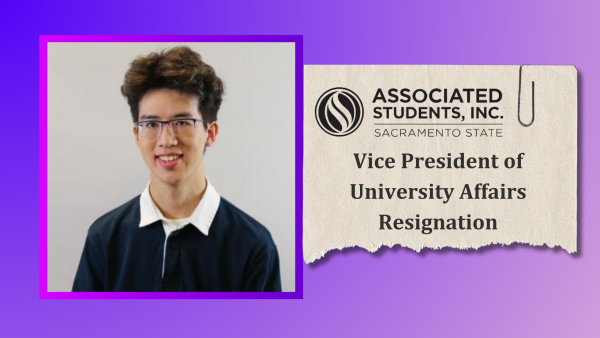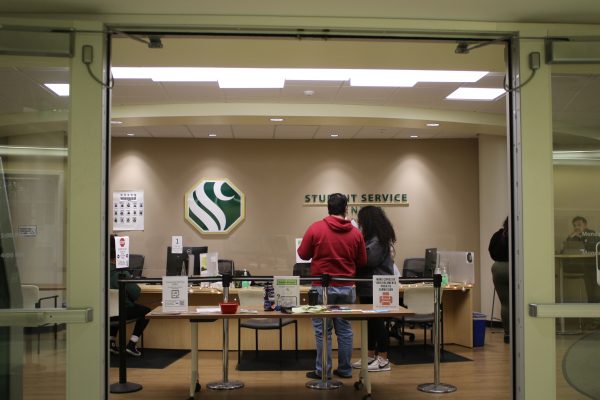Bill aims to prohibit CSU exec raises during tough budgets
September 7, 2011
Because the salaries of California State University and University of California executives are increasing during times when budgets are decreasing, state Sen. Leland Yee, D-San Francisco, has reintroduced legislation that would put a stop to such pay raises.
Under the legislation, Senate Bill 27×1, UC and CSU presidents and administration would be ineligible for compensation raises if the budget-outlined funding for the fiscal year is at the same or lower level than the previous year. This would include auxiliary compensation from the state or private sources.
“The fact of the matter is, if state support is lacking for the CSU or UC systems, then those limited dollars should be going towards enriching education,” said Adam Keigwin, Yee’s spokesman. “No pay raises should be going towards already highly-paid executives during times like these.”
Yee introduced a similar bill in 2009, but then-gov. Arnold Schwarzenegger vetoed the bill.
Yee has long criticized the UC and CSU’s decision on executive pay. Back in 2007, Yee pushed through legislation that forced UCs and CSUs to publicize decisions on compensation.
Discussion on pay now must be made accessible to the public, which allows people to voice opinions to the CSU Board of Trustees or the UC Board of Regents.
“Sen. Yee thought increasing transparency would force the CSU to take accountability for its actions,” Keigwin said. “However, that was not the case. The CSU board has proven through recent actions that they are completely out of touch.”
Part of the reason Yee introduced this new bill was the meeting in which the CSU Trustees voted to increase student tuition by 12 percent on the same day they voted to raise the salary cap of CSU executives to $350,000.
This increase allowed San Diego State University’s new President Elliot Hirshman to be approved for a pay package totaling $400,000, with $50,000 of that being annual supplements from San Diego State Foundation sources. The raise was approved by a 12-3 vote, even after the board received a letter of opposition from Gov. Jerry Brown.
“The CSU administration has shown themselves to be particularly tone-deaf to where we are as a society right now,” said Kevin Wehr, president of Sacramento State’s chapter of the California Faculty Association. “Legislation needs to be introduced if the CSU administration cannot exhibit some self-control.”
Erik Fallis, CSU spokesman, said an examination of the “CSU Executive Compensation Information” on its website will show that the CSU executives’ salaries are more in line with those of community college executives than that of UC executives.
For Wehr, the biggest offense being committed is the fact that the CSU executives’ pay continues to go up while faculty salaries remain stagnant.
“At a time when faculty and staff have been without raises, or an updated contract, for years … for CSU executives to be given raises at this time really shows the administration has its priorities all wrong,” Wehr said.
Fallis said the CSU is holding special committees to discuss internally what should be done regarding compensation, put together at the request of the chancellor and Board Chair Herb Carter. Among other policy discussions, such as the presidential selection process, the committee is discussing the possibility of implementing salary caps on CSU presidents, including pay garnered by state and private dollars.
“Our encouragement is that any legislation of this sort wait for our committee to conclude its sessions,” Fallis said. “Policy changes could come out of it that alters the language that would need to be in any such legislation.”
The special committee has met for discussion twice, most recently on Aug. 24. CSU staff is in the process of analyzing the proposals, and the committee is planning to meet again in October. Upon its conclusion, the committee will deliver recommendations to the CSU Trustees.
The CSU policy discussions have been completely open to the public due to the legislation Yee passed in 2007.
As for Yee’s recent legislation, state Senate President Pro Tem Darrell Steinberg, D-Sacramento, has yet to give it the green light required to move it along in the legislative process. The bill was introduced past strict deadlines, so it must be heard through a special legislative session.
“It’s hard to predict what the success will be under these circumstances,” Keigwin said. “Obviously, we will remain hopeful.”
Salaries of CSU executives 2011-12
San Diego State University President Elliot Hirshman: $350,000
Cal Poly San Luis Obispo President Jeffrey Armstrong: $350,000
San Jose State President Mohammad Qayoumi: $350,000.
CSU Los Angeles President James Rosser: $325,000.
CSU Long Beach President F. King Alexander: $320,329.
Fresno State President John Welty: $299,000.
Humboldt State University President Rollin Richmond: $297,870.
Sacramento State President Alexander Gonzalez: $295,000.
CSU Fullerton President Milton Gordon: $295,000.
Sonoma State University President Ruben Arminana: $291,179.
CSU Bakersfield President Horace Mitchell: $285,000.
Chico State President Paul Zingg: $279,500.
CSU East Bay President Leroy Morishita: $276,055.
CSU Monterey Bay President Dianne Harrison: $270,315.
CSU Stanislaus President Hamid Shirvani: $270,000.
Brett Johnson can be reached at [email protected].




































































































































